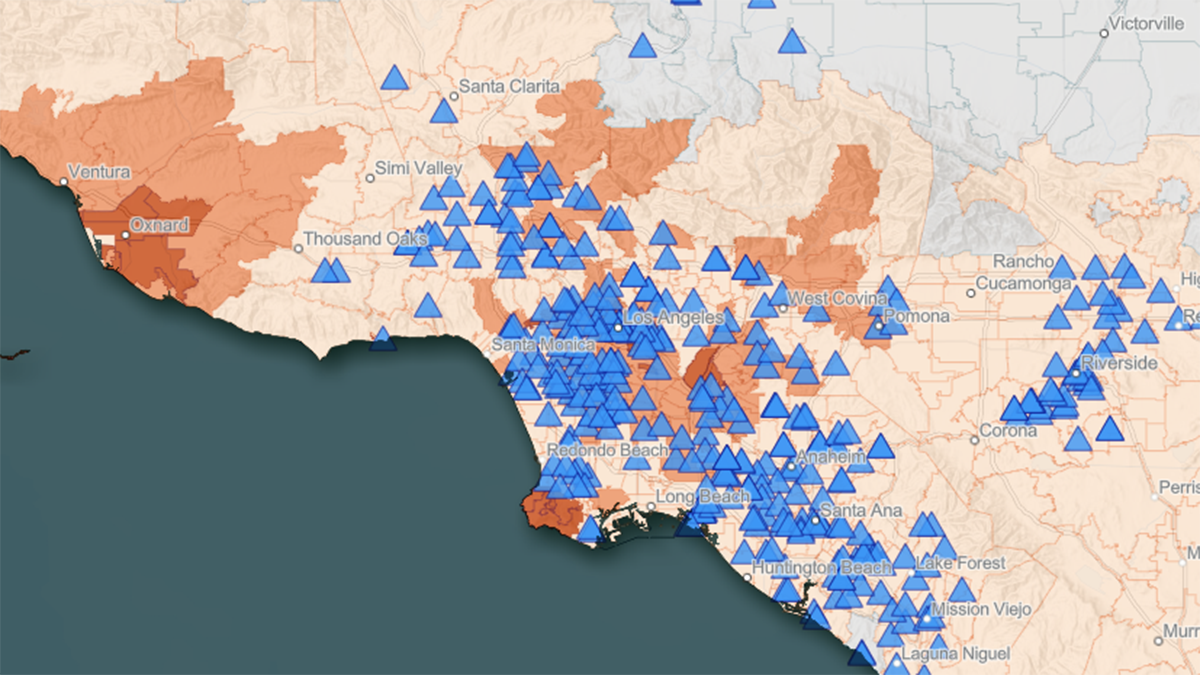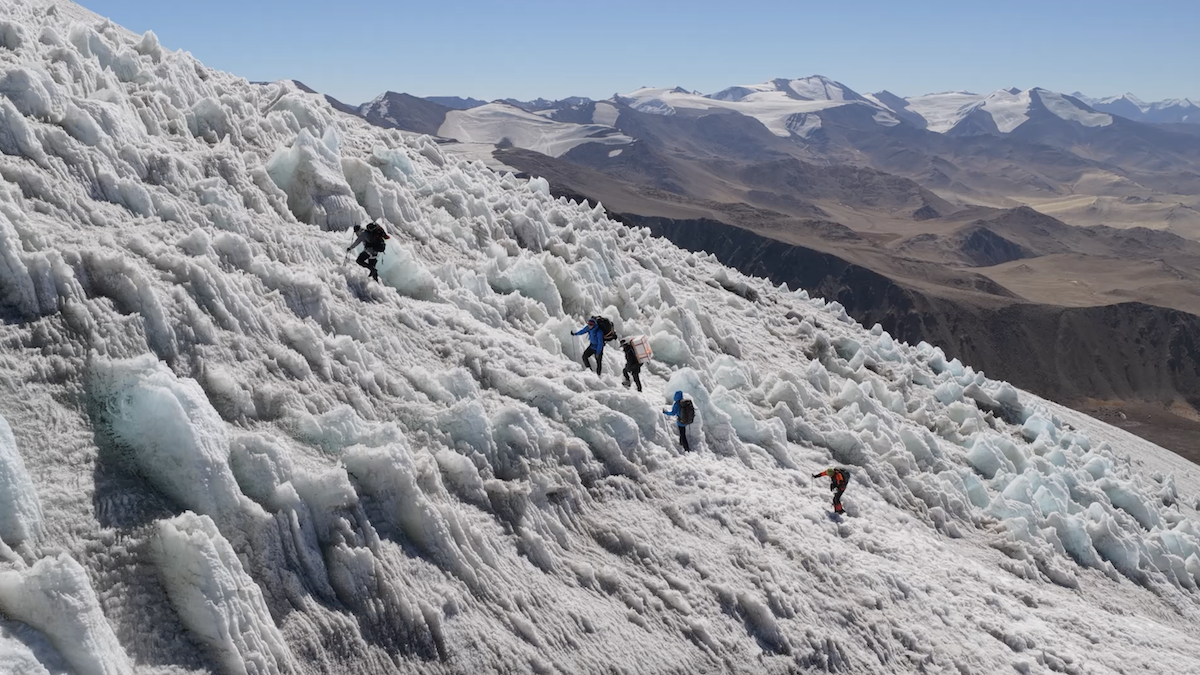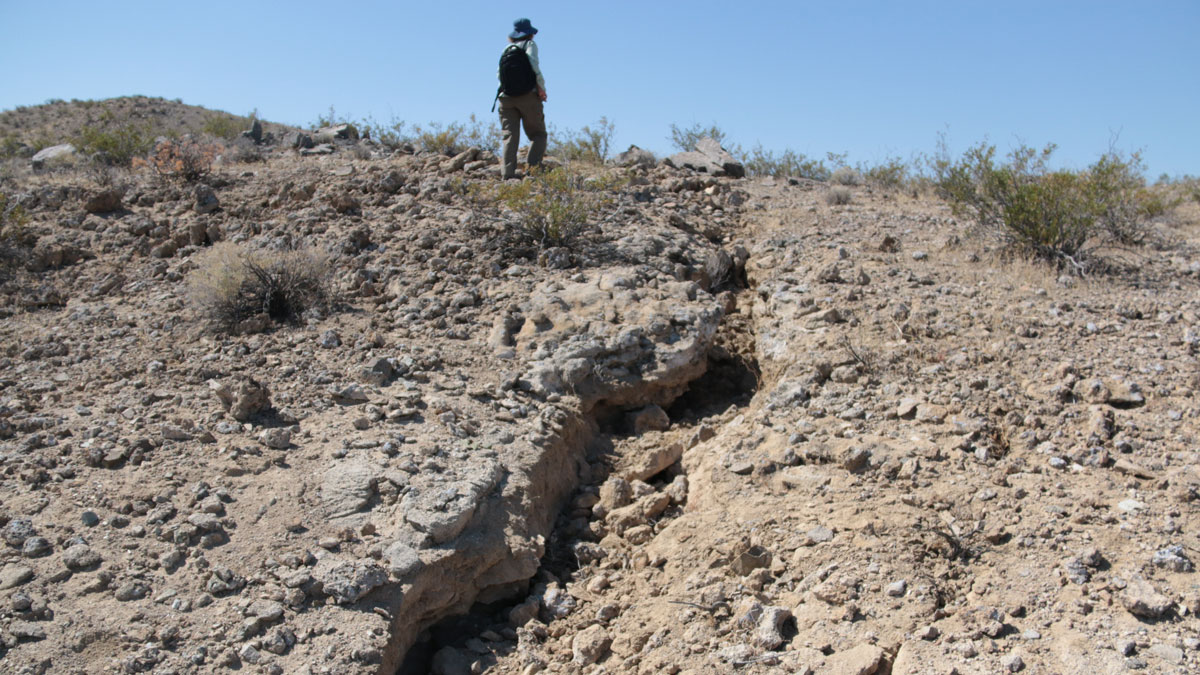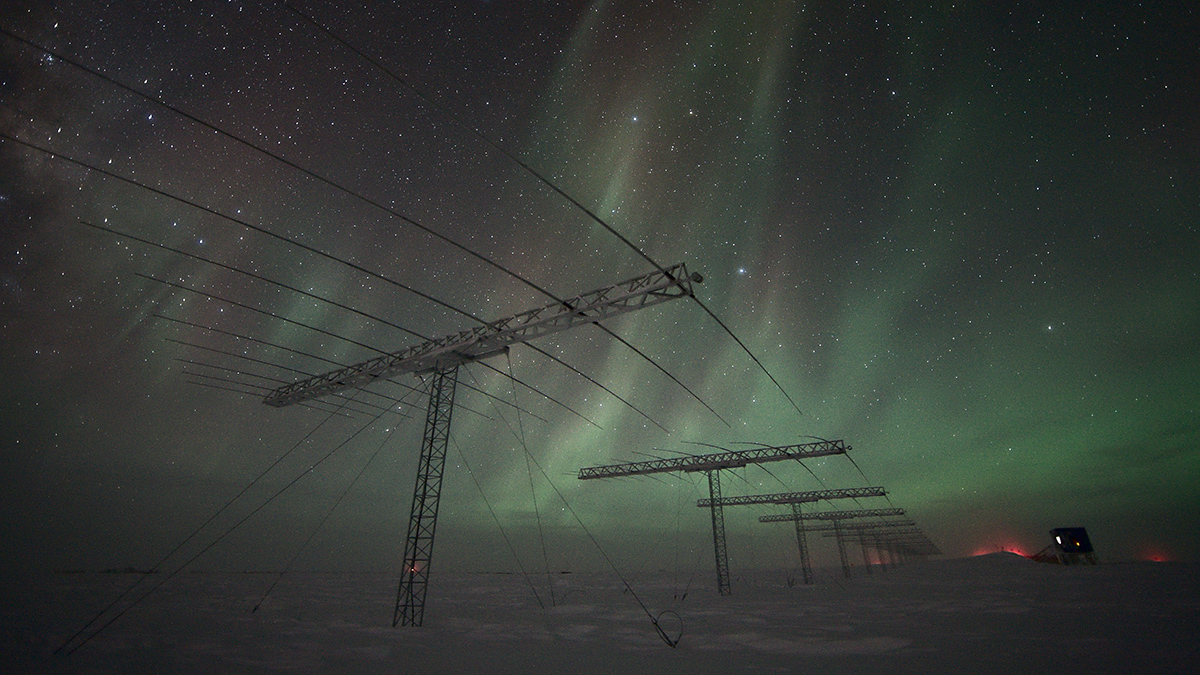Regular, alternating layers in Gale Crater may have been deposited as the result of tides raised by a moon at least 18 times the mass of Phobos, a study says.
News
New Tool Maps the Overlap of Heat and Health in California
CalHeatScore creates heat wave warnings for every zip code in California, using temperature data, socioeconomic indicators, and the history of emergency room visits, to predict heat-related health risk.
Ocean Tunneling May Have Set Off an Ancient Pacific Cooldown
The ocean’s depths cooled off about 1.5 million years ago, and scientists think watery tunnels from the south may be to blame.
Pamir Glacier Expedition Returns with High-Elevation Ice Cores
The three glacial cores will unlock mysteries about past climate and weather patterns in central Asia.
Grandes Sequias Coincidieron con el Colapso Maya Clásico
El entendimiento de cómo las ciudades individuales respondieron al estrés climático ayudará a crear imágenes holísticas de cómo estas sociedades funcionaban.
Garment Factories Are Heating Up. Here’s How Workers Can Stay Cool
The solutions are simple, but economic barriers remain high.
The Ridgecrest Earthquake Left Enduring Damage in Earth’s Deep Crust
The shallow crust has recovered since California’s 2019 quake, but damage persists at depths greater than 10 kilometers.
When Cascadia Gives Way, the San Andreas Sometimes Follows
Roughly half of the earthquakes that occurred along the southern Cascadia subduction zone over the past 3,000 years were temporally associated with earthquakes along the northern San Andreas fault.
Speedy Flyby Adds New Organics to Enceladus’s “Primordial Soup”
A new analysis of old Cassini data has also verified past detections of complex organics in Saturn’s E ring, strengthening the chemical ties between the ring and its progenitor.
A Weak Spot in Earth’s Magnetic Field Is Going from Bad to Worse
This could be bad news for satellites and spacefarers.










